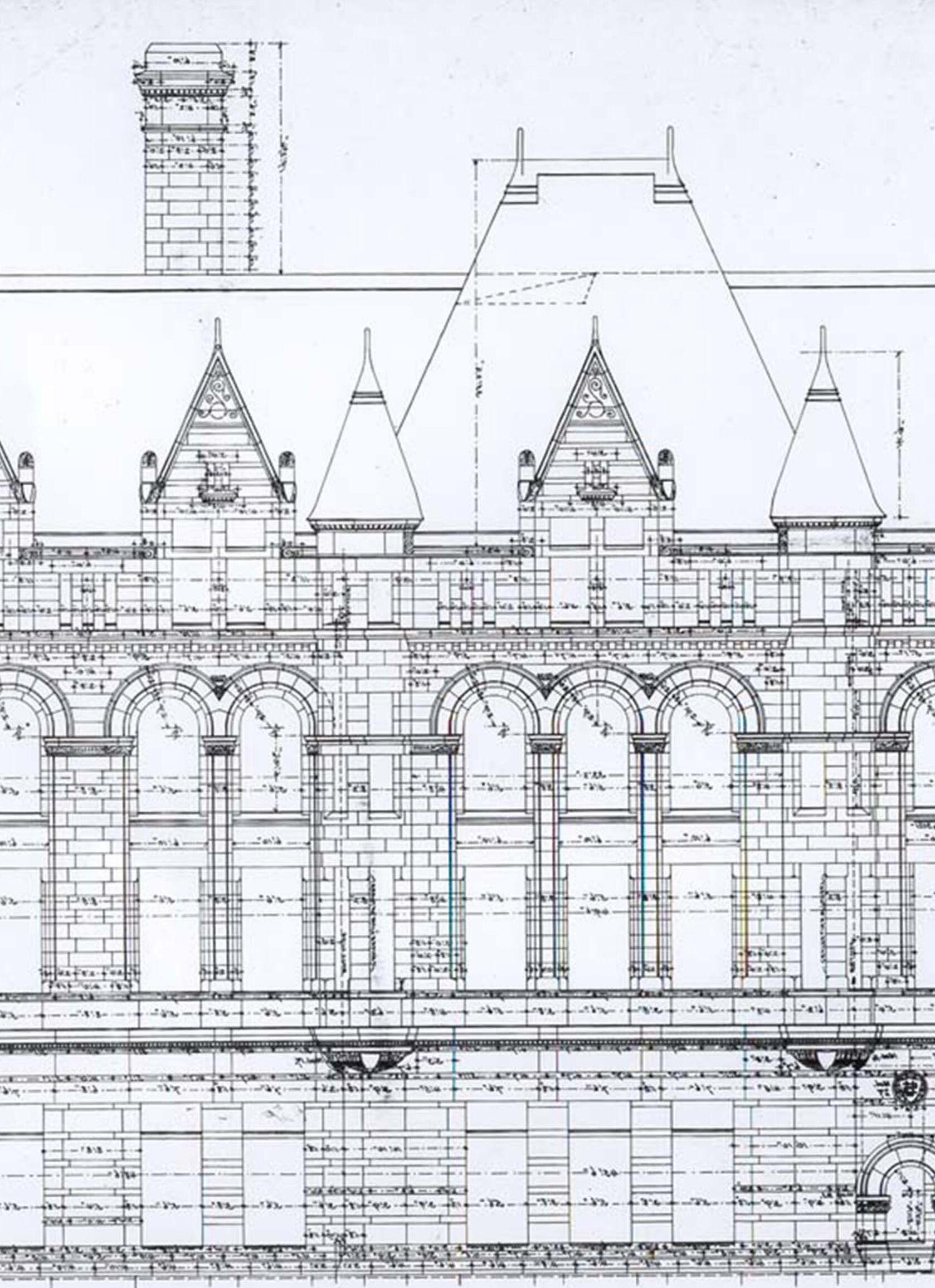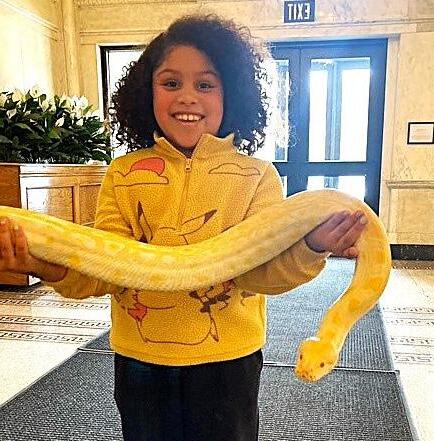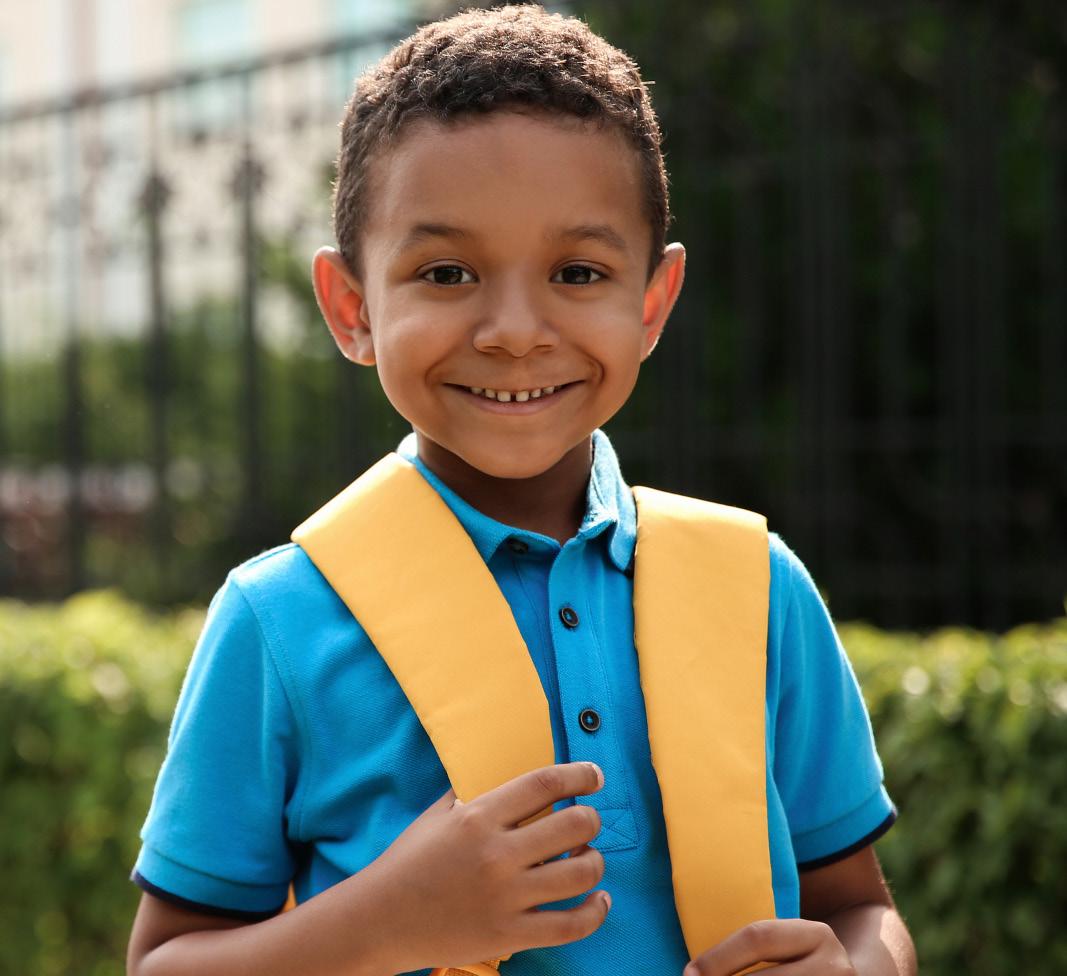
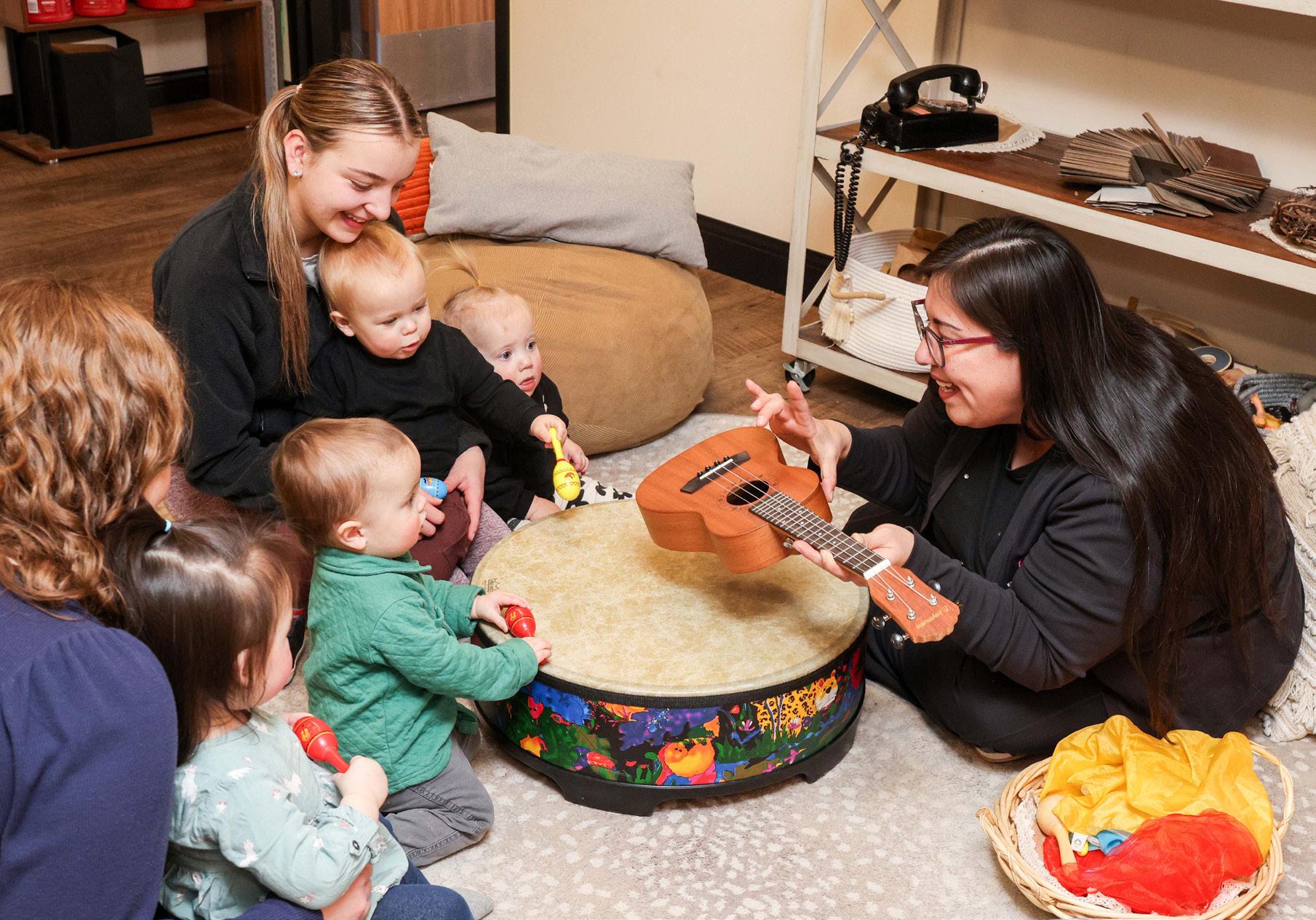
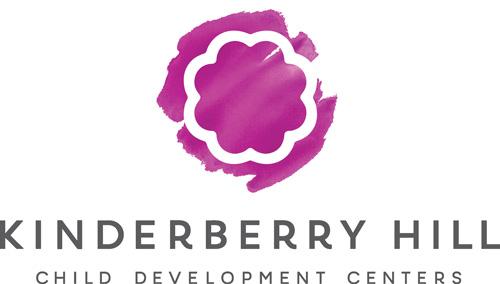
Proudly providing
As the Twin Cities’ premier child development experts for over 25 years, Kinderberry Hill has proven reputation for providing the finest learning experience available for Minnesota’s youngest learners.
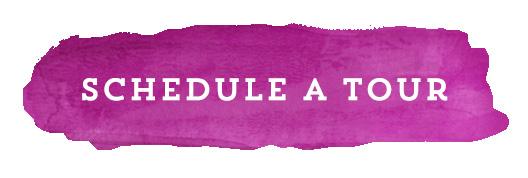

Explore





Proudly providing
As the Twin Cities’ premier child development experts for over 25 years, Kinderberry Hill has proven reputation for providing the finest learning experience available for Minnesota’s youngest learners.


Explore










Year-Round Outdoor Classrooms
Large Indoor Gym & Atelier
On-Site Nurse
Small Group Sizes
Sign Language Curriculum
STEAM Curriculum
Spanish Curriculum
On-Site Chef
WhY leArn A second lAnguAge eArlY?

Boosts
BrAin Power
Strengthens problem-solving skills, memory, and attention to detail.

Opens
CulturAl Doors
Encourages understanding of diverse cultures, traditions, and perspectives.

Improves CommunicAtion
Enhances a child’s ability to listen and express themselves.

Builds Confidence
Fosters curiosity and a sense of achievement that lasts a lifetime.
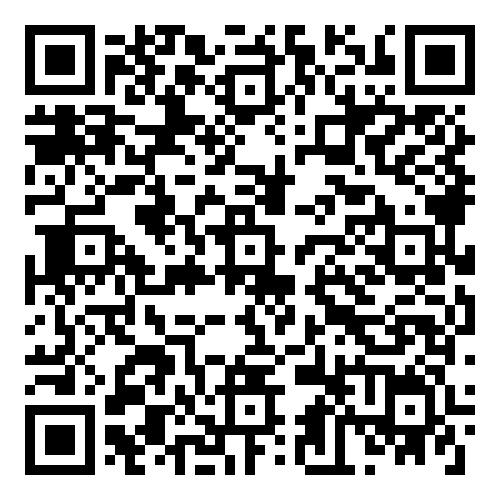
leArn More About SpAnish At KinderberrY Hill






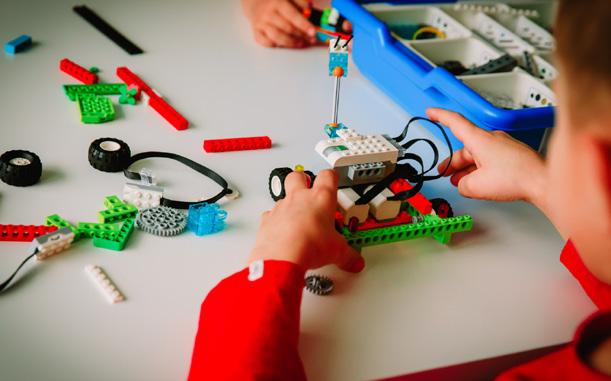
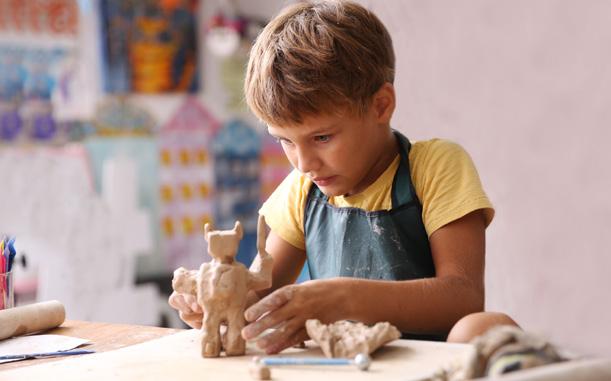
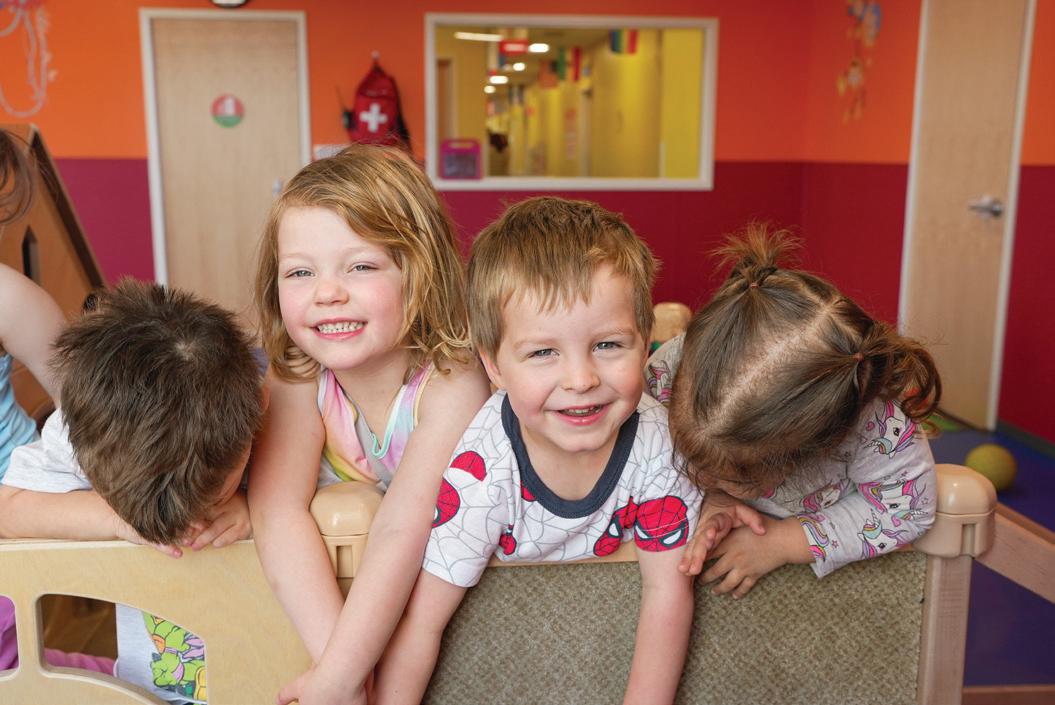
Want a little practice before taking a trip? Buckle up.
The Navigating MSP Airport program was created in partnership with the Fraser organization to allow people to practice unique airport experiences— including security screening, boarding and fastening your seatbelt—before you fly.
Thinking forward. Rising above.
Learn more about Accessibility at MSP.
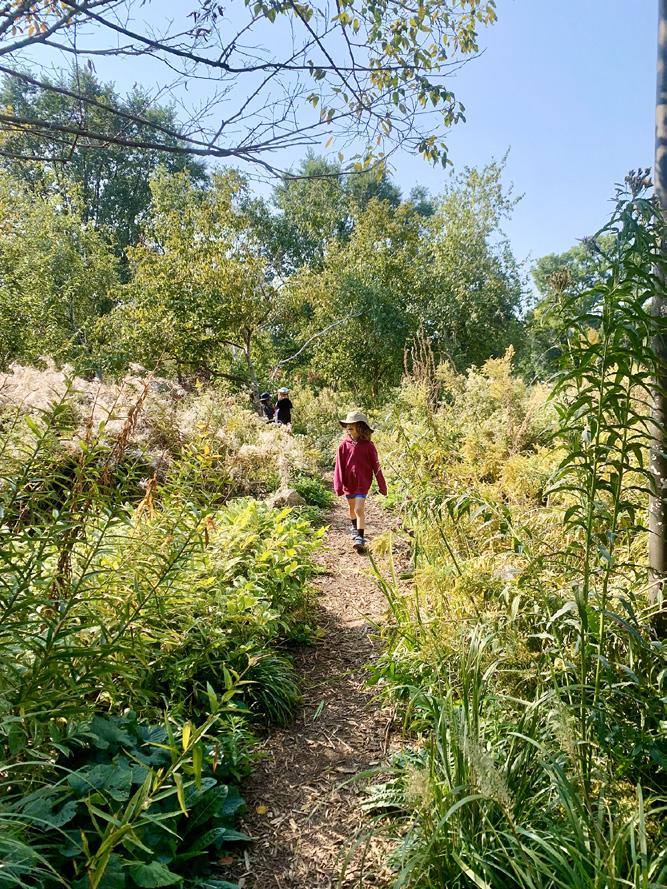
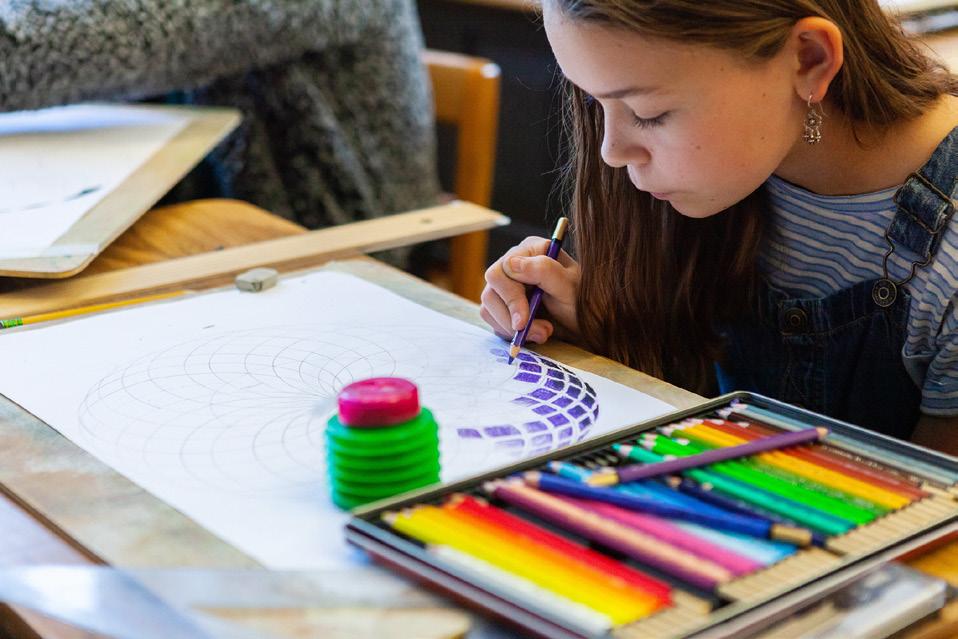


Finding the perfect school for your child can feel daunting. With so many choices out there, it’s hard to know which one will be the best fit for your child and his or her specific needs.
When you and your family are considering a new school, these 7 tips make it easier to find one that is just right:
Whether it’s out at the park, at the library, or during ballet carpool, ask kids about their school. Sometimes this is easier if your kids ask, or at least start the conversation. Find out what the kids love doing on a given day or their favorite thing about their school. Ask them about projects they do and how much homework they have. Most kids will be thrilled to share their expertise.You can learn a lot from kids if you pay attention.
Talk to parents.
See what schools they love and why. Find out if they are friends with other
families there. Ask about the teachers that make it great. The most important thing is to talk to real people, face to face if possible. Don’t rely on social media for accurate information. While you will find out some helpful things, it is always better to talk to people in person to better understand their experiences.
Does the school have a schedule that works for your family? It is important that the days and hours align with your family schedule, but also with your child’s preferences. Some schools have an early start while others start later. Some schools have a unique calendar year with things like different breaks or


year-round schooling options. Also, look at what options they have for after-school activities and after-school childcare if needed. Think about what you and your child would benefit from.
about educational philosophy. Every school has a unique approach. Some schools focus heavily on academics while others focus on social skills. Some schools stress nature-based learning while others focus on the arts. Don’t get caught up in what these approaches are called, but think about your child and how their interests line up with what the school offers.
Public and private schools alike have costs associated with them. The cost must work for your family. Consider any tuition costs as well as extras like fundraisers, field trips, and parties. Some schools have pay-to-play sports, which could add hundreds or thousands of dollars. Ask about both expected expenses and unexpected. Be bold about asking these questions before you choose a school so you are not stressed later about unexpected expenses. Finding a school that your family can afford will create a less stressful environment for you and your child.

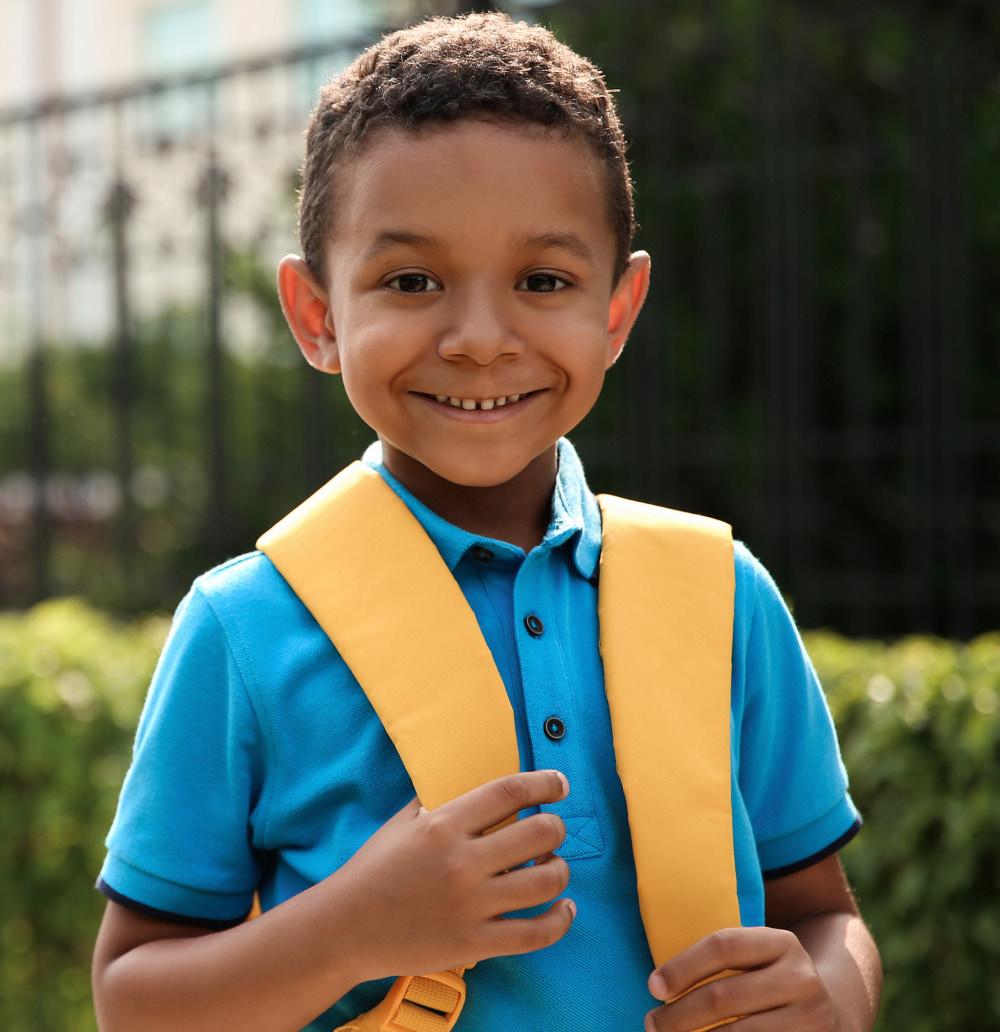
While there are some obvious things to look for during a visit, here are some things you may not have thought of that can tell you a lot about the school:
• Are the bathrooms clean and in good condition? While the front office and welcome area may be in tip-top shape, the condition of the bathrooms can tell you a great deal about the building and how it is maintained.
• Is there good noise? The best schools find the sweet spot between the quiet needed for concentration and the noise of kids actively engaged in learning.
• How are the lunchroom and recess managed? Often, this can be one of the best parts of a child’s day. Walk through during lunch and recess and observe how the time is managed, how behavior is handled, if kids are happy, and of course, how the food looks!
• Are there safety measures clearly in place? Safety in schools is more important than ever. Notice if the exterior doors remain locked. Look for communication between staff members with things like walkie-talkies. Don’t be afraid to ask about things like lockdown drills and safety plans.
Ask how much parents are expected to be involved and make sure it is something you are comfortable with. Some schools ask for parents to volunteer during the school day regularly while others only invite parents for holiday and year-end programs. Extras like fundraising or events can also be a requirement. Find out what is expected so you know if you can participate at that level.
Ask to observe.
See if there is a good time for you and your child to visit and participate during the school day. Watching the school in action is one of the best ways to discover if it will be a good fit. Chat with some parents at drop-off or pickup. Observe the kids as they work together. All of it fits together to create your child’s learning atmosphere.
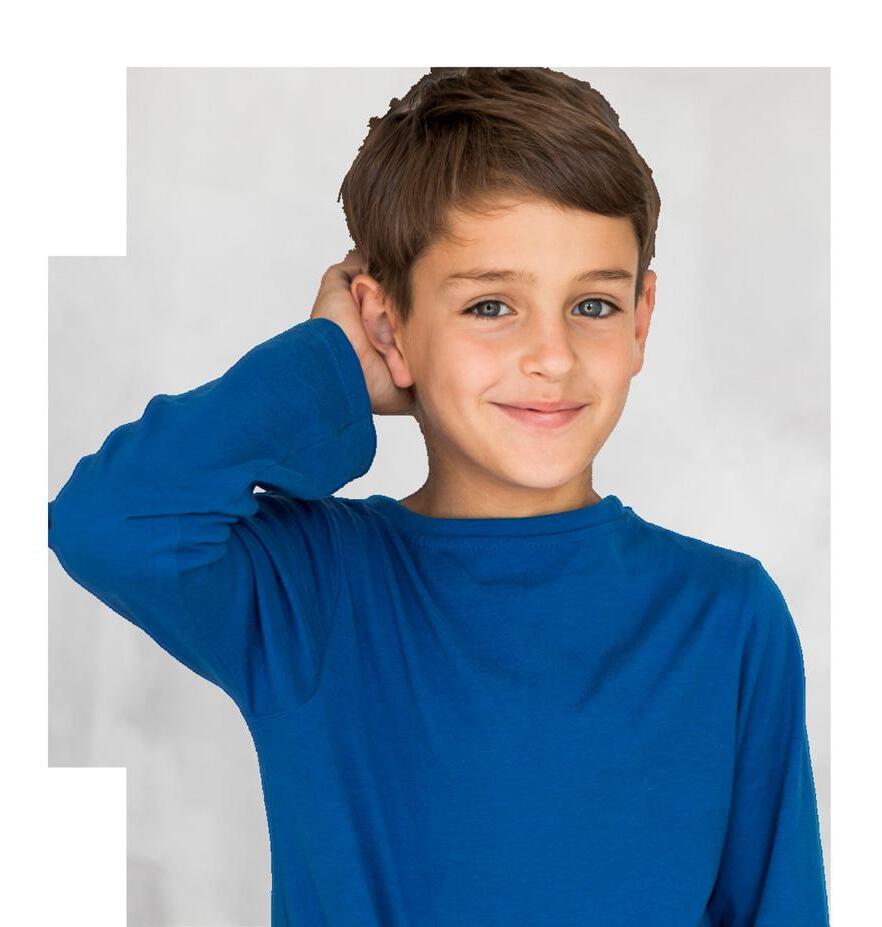

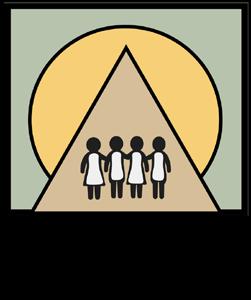


Finding the perfect school for your child doesn’t have to be stressful. Be realistic about your child, your family’s needs, and how they match up with the school. With these simple tips, you can discover a learning environment that will be perfect for your child.
What sets our program apart? Our dedicated lead teachers have all been with us for over 5 years— creating a stable, nurturing environment where your child can truly thrive.
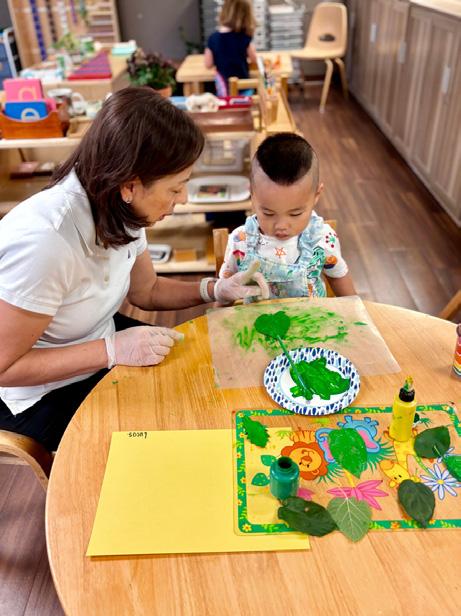
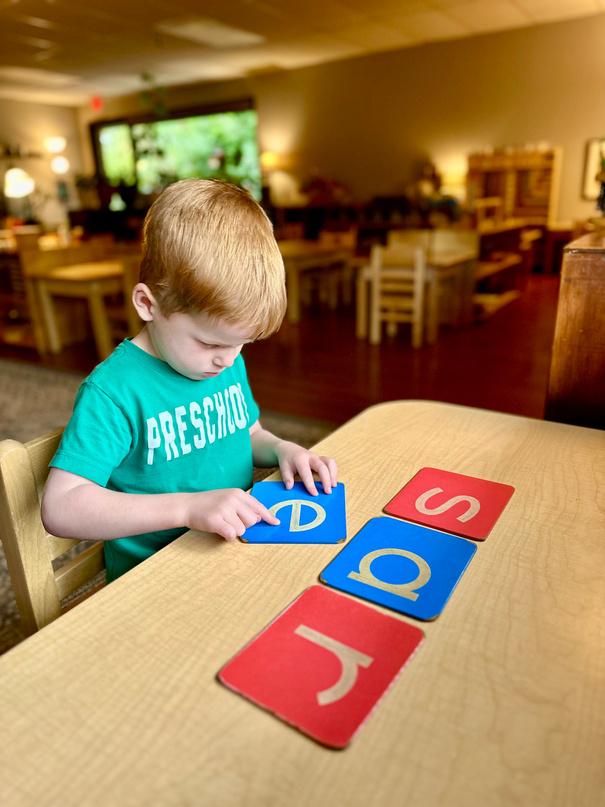
RECEIVE UP TO $500 OFF YOUR FIRST MONTH!*
• Extended hours
• Seedlings® Early Childhood Education Curriculum
• STREAM, Yoga & Mindfulness, Sign Language, Spanish, and Music included
• Parent eCommunication app
• Interactive whiteboards and iPad technology
• Enhanced health & safety protocols with air purification and filtration
• ParentView® Internet Monitoring
• State-of-the-art security systems
*See center for details. Discount applied to number of days enrolled. Offer cannot be combined, for new enrollment only. Expires 12/19/25.
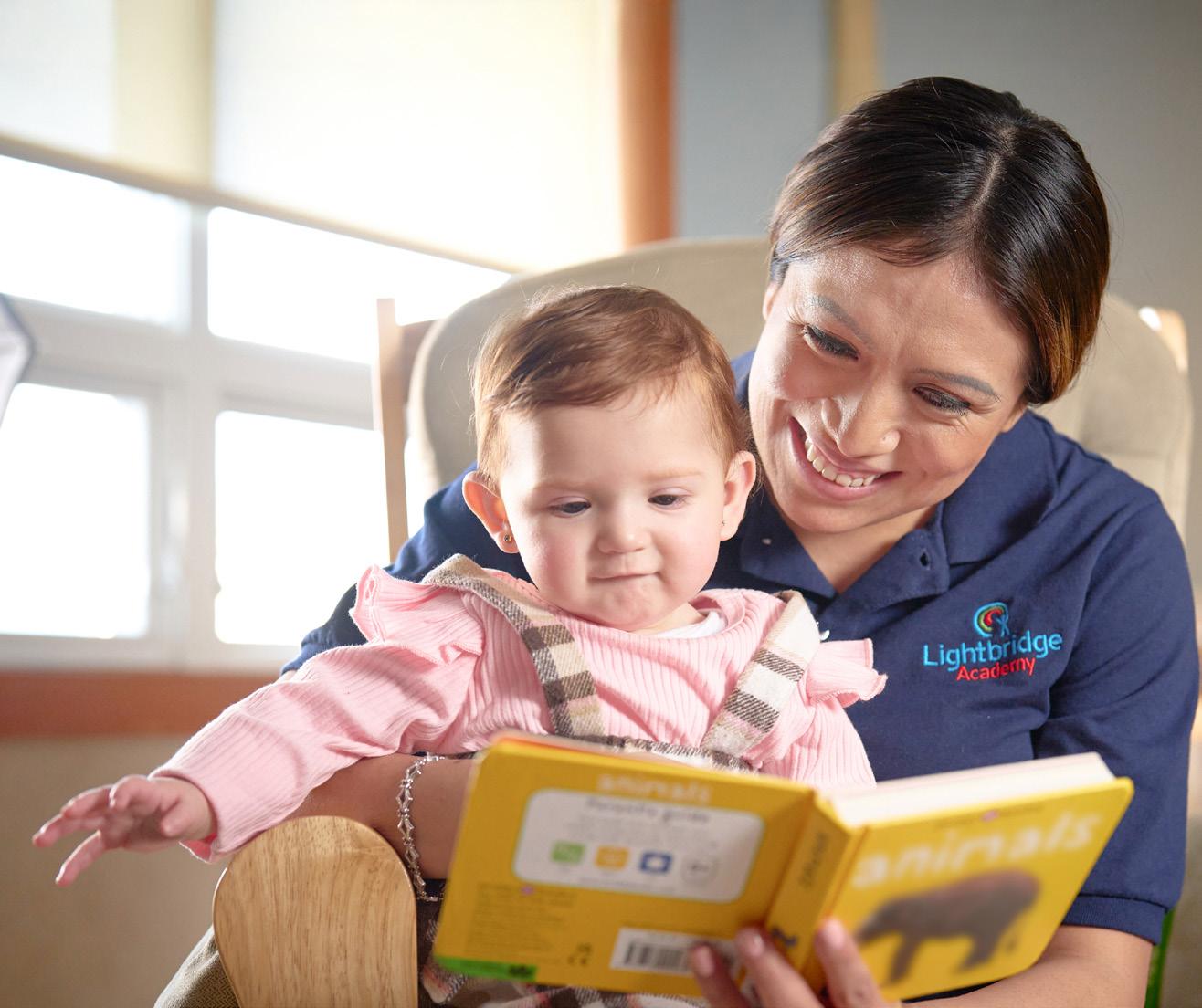
Instruction built for online, not just online delivery of instruction
From kindergarten through graduation, families and students all across Minnesota choose One91 Virtual Academy for 100% online instruction for many reasons. Students are given the same tools and knowledge as those in a traditional classroom, including access to District 191’s renowned Pathways program, and full tech and academic support for success along their journey. No matter where your child opens their computer, they’ll be connected to teachers and sta who are ready to help them blaze their path.
Virtual Academy is a great fit for students who…
Enjoy learning and connecting with others online
Want more choice in class pacing
Need more flexibility in their schedule
Work well independently
Thrive in a personalized home learning environment


• Live instruction daily + independent learning time
• Art, music, PE and digital learning–all live
• Small group sessions and o ice hours for extra support
• Pathways exposure: exploring interests through themed learning
• In-person field trips and access to district clubs and activities
• Learn on your own schedule with mostly asynchronous classes
• Individual check-in meetings and o ice hours for extra support
• Wide range of electives, honors programming and Pathways opportunities
• Full-time or part-time (supplemental) enrollment options
• Access to district clubs and activities
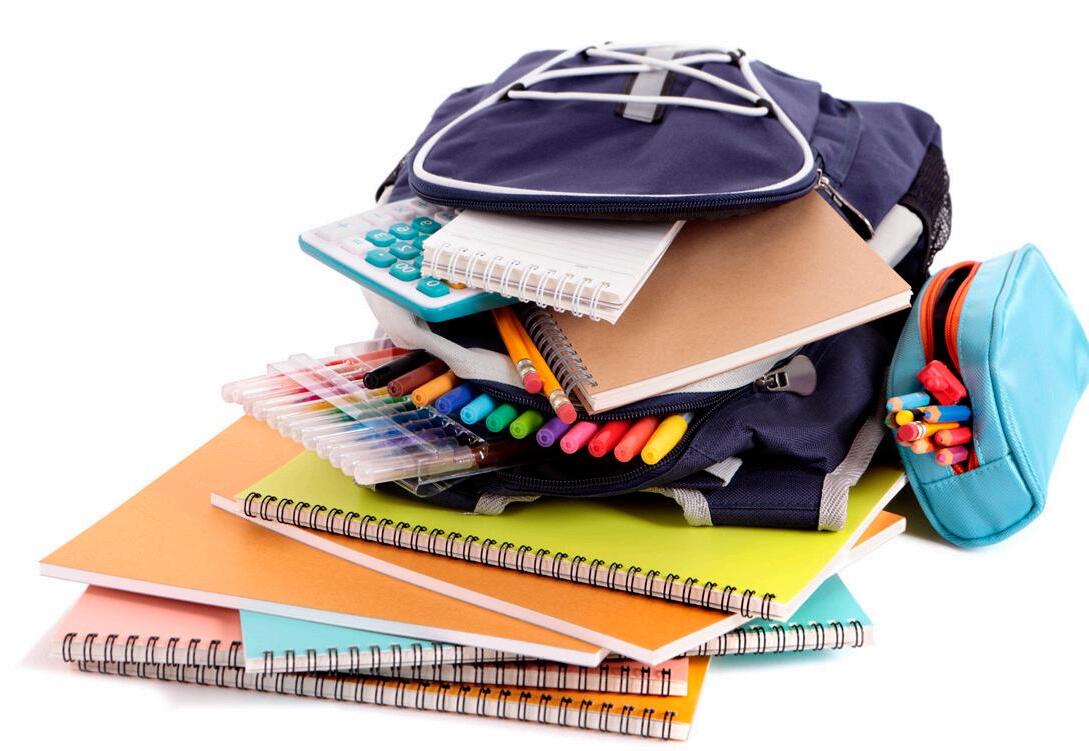
Standing at the stove, I called my kids to the kitchen. As I opened the box of pasta, I told them it was homework time. I was met with groans. It’s not that they couldn’t do their homework. It was that they didn’t want to. I immediately felt the resistance as they dragged their backpacks to the table.
It wasn’t long before I was fielding requests. “Can I just play outside for a little longer?” “I need to go to the bathroom.” “Can we have another snack?” They wanted to do anything other than their homework. As I tried to get dinner made, I felt my tension rising, fielding each question to try to keep them on task. I didn’t do this any more than they did.
The reality is that most everyone had a busy day. Maybe it was at school, learning and working hard. Maybe it was at home, keeping up with the household. Maybe it was at work, doing what you love or what needs to be done. Maybe it was endless errands that left you feeling like you spent the day in the car.
No matter how you spent the busy day, now everyone is home and ready to relax, but there’s that pesky homework to take care of. Before it turns into a battle of wills and even tears, try these tips to keep the peace.

I know this is hard. We have so much to do, and we multitask. Dinner is not going to cook itself, right? Multitasking, however, may cause more stress and mistakes.
The more present we can be, the more quickly things seem to get accomplished. If your child struggles with homework, your availability can make a big difference, allowing you to answer a question before frustration takes over.
Many kids have reading time as part of their homework. Show kids that reading is a priority by making that time a family reading time. Everyone can participate. Grab something for yourself and sit down and read. It can be the novel collecting dust on your nightstand or the newspaper. Even something for work could count here as long as it is dedicated reading time. (And no, Facebook doesn’t count.) Even little kids can sit with a stack of books to look through. Modeling good reading habits goes a long way in teaching kids that reading is a good part of everyone’s life.
Some people insist that doing homework right when kids get home is the best way to get it done. While this ensures a less tired child, that may not work for every kid.
Some kids need time to decompress from a busy school
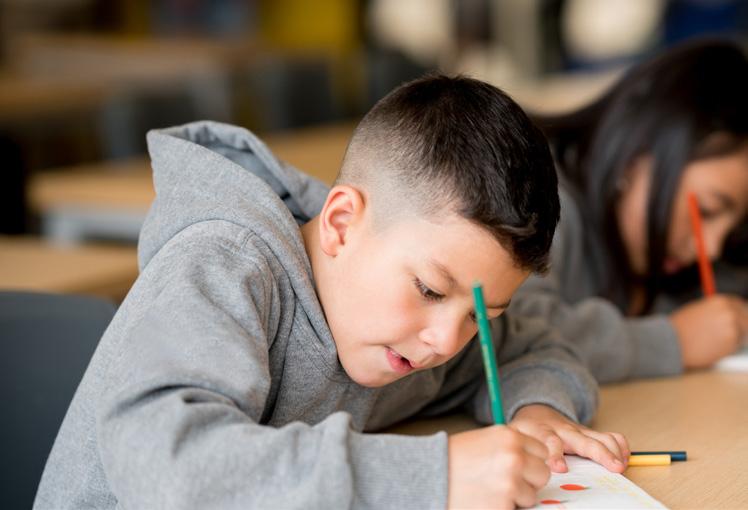
day. You may find that a half hour for a snack and playing outside works wonders. Try out some different times and see what works for your child. Once you find what works best, try to make it consistent.
Sometimes you just need to surrender. Some days feel overwhelming, and the homework is just too much. While it is important to teach responsibility,
Nationally Accredited Private School Grades 1 - 12 Mendota Heights & Plymouth
Programs include:
Full-Time & Part-Time

Skill Building
Tutoring & Executive Functioning Support
Open Enrollment start anytime of year
Flexible Scheduling built around your family’s needs
Meets Minnesota State Standards
we need to be able to recognize when something is truly too difficult for a child to work on independently. Often, this indicates that more instruction is needed in the classroom before the child can do it without teacher support at home.
Instead of forcing a truly difficult task, talk about it with your child and make a note for the teacher that it was exceptionally hard. This is not an excuse for not wanting to do homework. Most teachers would much rather know that a student is struggling at home than have a child in tears over their work or, even worse, a parent complete the assignment.
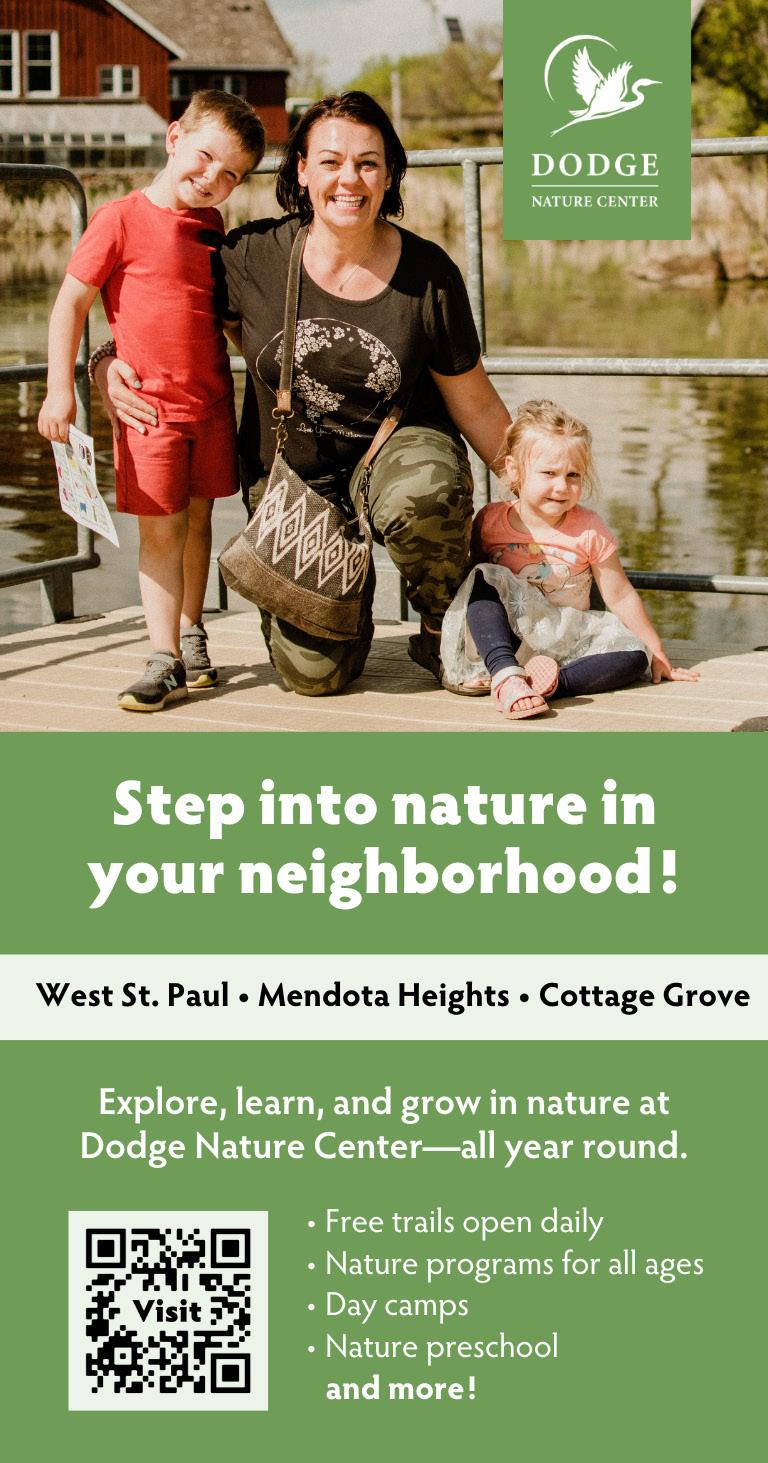
Homework is an opportunity to practice things learned in class and provide feedback for the teacher about how much of a concept a child grasps. Teachers have no desire to know that a parent is capable of completing that math worksheet. Open communication with the teacher, parent and child makes homework a much better experience for everyone.
Homework can be a tricky task after a long day. For most kids, homework is a reality of school life. Making the best out of it will help both you and your child.

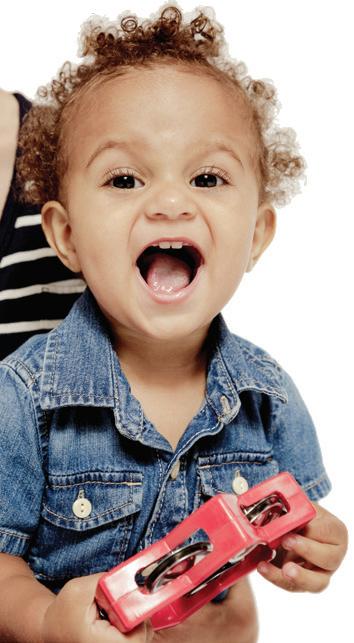
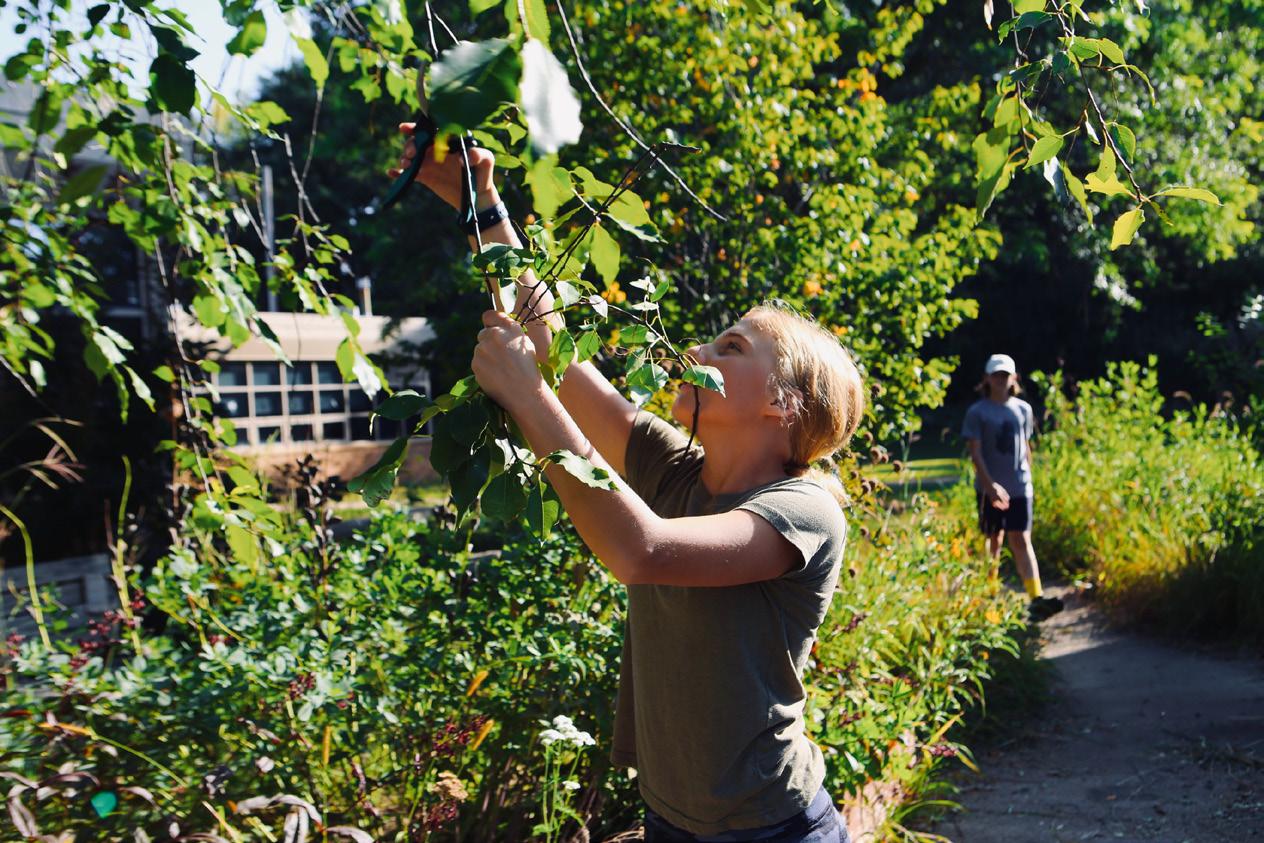


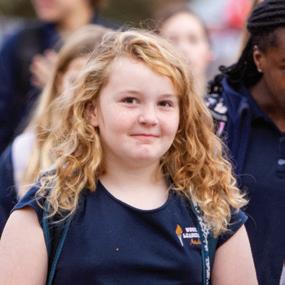
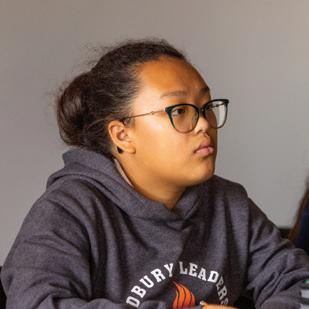

At One91, we offer two 12-month programs designed to nurture and support the growth of our youngest learners:
Ready to Grow embraces the philosophy of primary caregiving that allows for nurturing and attachment between your child and their primary caregiver Our teachers play a vital role in fostering development by serving as an essential link between you and your child, supporting your goals as a parent, and providing a consistent, positive, and nurturing environment.
N e w N a t u r a l
P l a y g r o u n d
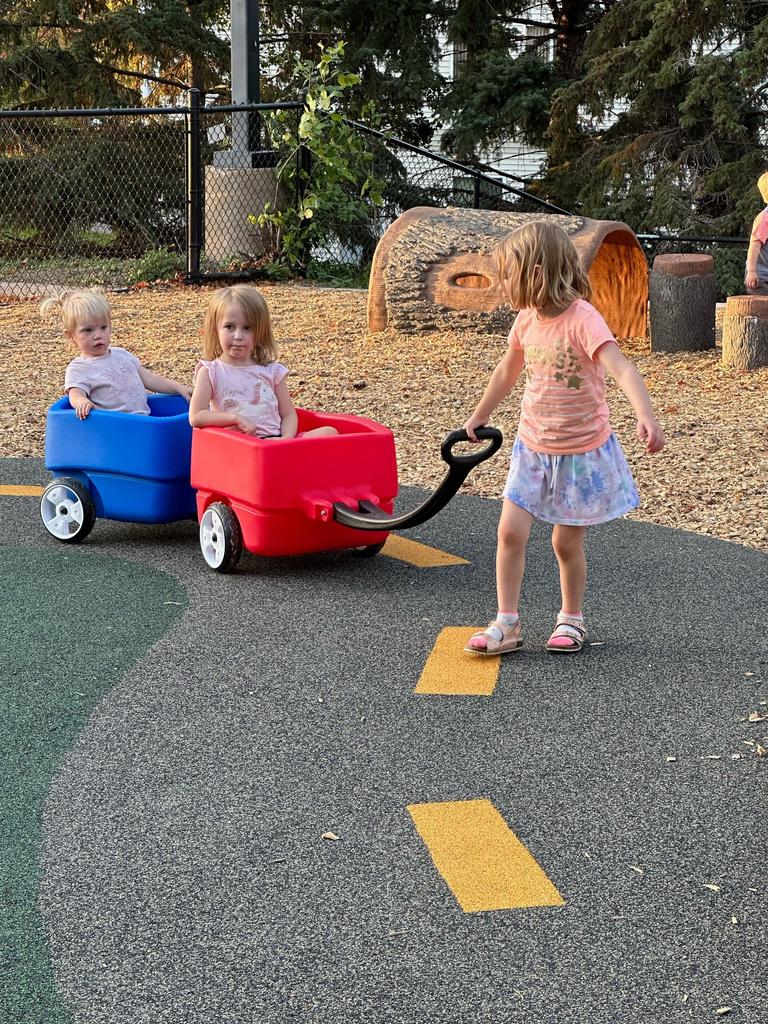

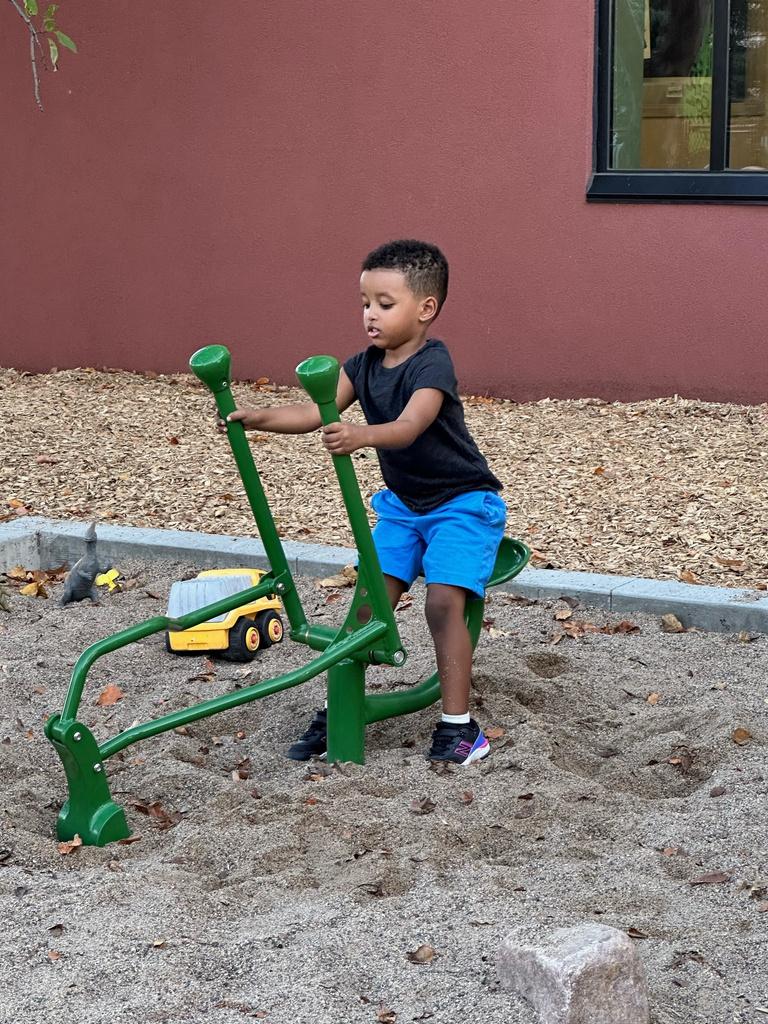
The natural playground is designed to spark curiosity and wonder, allowing children to explore, play, and grow in an environment that fosters creativity and development Features include dinosaur skeletons for imaginative play, sand and water tables for sensory exploration, a sensory swing, a mini parking lot for interactive learning, and climbing tools with slides to strengthen physical and motor development.
Ready to Learn curriculum focuses on school readiness in the areas of language and literacy, science and math, creative arts and music, dramatic play and movement, and health and nutrition. Through hands-on experiences, children discover the world around them, sparking curiosity and creating their own unique pathways to learning.
Enrollment Bonus: Receive 1 Month of Free Tuition with a Full Year Enrollment Commitment!
Choose your schedule: M-F from 7 am-5:30 pm Diamondhead Education Center in Burnsville Competitive Rates, Scholarships Available Meals & snacks provided



After-school activities are an excellent way for kids to learn new skills. But how do you decide which activities are best for your child? As parents, it’s essential to approach this process thoughtfully, considering what aligns with your child’s interests, age, and personality.
Each child is different, and what excites one may not interest another. Observe what your child enjoys doing in their free time and ask them about what they want to do. If your child is active and enjoys being outdoors, sports activities like soccer, swimming, or hiking might be a good fit. For creative children, consider enrolling them in art classes, music lessons, or dance. Academically inclined children might enjoy STEM clubs, coding classes, or chess clubs. Those who are socially minded might thrive in debate clubs, community service projects, or theater groups.

Selecting age-appropriate activities is crucial for your child’s engagement and development. Consider your child’s age and general abilities.These are not set rules, but guidelines to help you make the best choices.
• Preschool (Ages 3-5):
Focus on basic motor skills, creative play, and simple group activities like music or dance classes.
• Elementary School (Ages 6-11):
Offer a variety including team sports, arts and crafts, music lessons, or scouting.
• Middle School (Ages 12-14):
Encourage more specialized interests such as robotics clubs, drama productions, or advanced sports teams.

• High School (Ages 15-18):
Provide opportunities for leadership roles, competitive sports, career-oriented clubs, or volunteer work.
While structured activities are essential for skill-building and social interaction, it’s equally important to allow time for unstructured activities. Structured activities provide discipline and a sense of accomplishment. However, unstructured activities, such as free play at home, nature walks, library time, playdates, and family nights, are crucial for fostering creativity, relaxation, and self-directed learning. Ensuring a balance between the two types of activities helps prevent burnout and encourages overall development. Plus, kids have more fun when they feel balanced.
Practical considerations play a significant role in choosing the best after-school activities. Look for activities that are conveniently located close to home or school to minimize travel time and stress. The schedule of the activity should

fit well within your child’s daily routine without overwhelming them. Additionally, evaluate the costs associated with the activity, including fees, equipment, and any additional expenses. Some organizations offer financial assistance or scholarships, so explore these options if needed.
Kids need to explore different activities to help them discover their passions and develop a broad range of skills. Allow them to try new things and support their independence in making choices.
It’s important to foster perseverance and commitment when kids try new things. A great way to do this is to set a clear expectation for how long they will

try the new activity. This can be a set number of times or a period of time. It is equally important to recognize when an activity is not a good fit and be open to making changes. This approach helps your child develop resilience and adaptability.
Open communication with your child is essential throughout the process. Listen to their preferences and concerns, and regularly check in to see how they feel about their activities. Ensure they are enjoying the activity and feeling positively challenged. Your support and encouragement are crucial in helping them thrive and grow.
While after-school activities can be a valuable part of your child’s growth, it’s easy to overfill the calendar.
Between school, activities, homework, and family

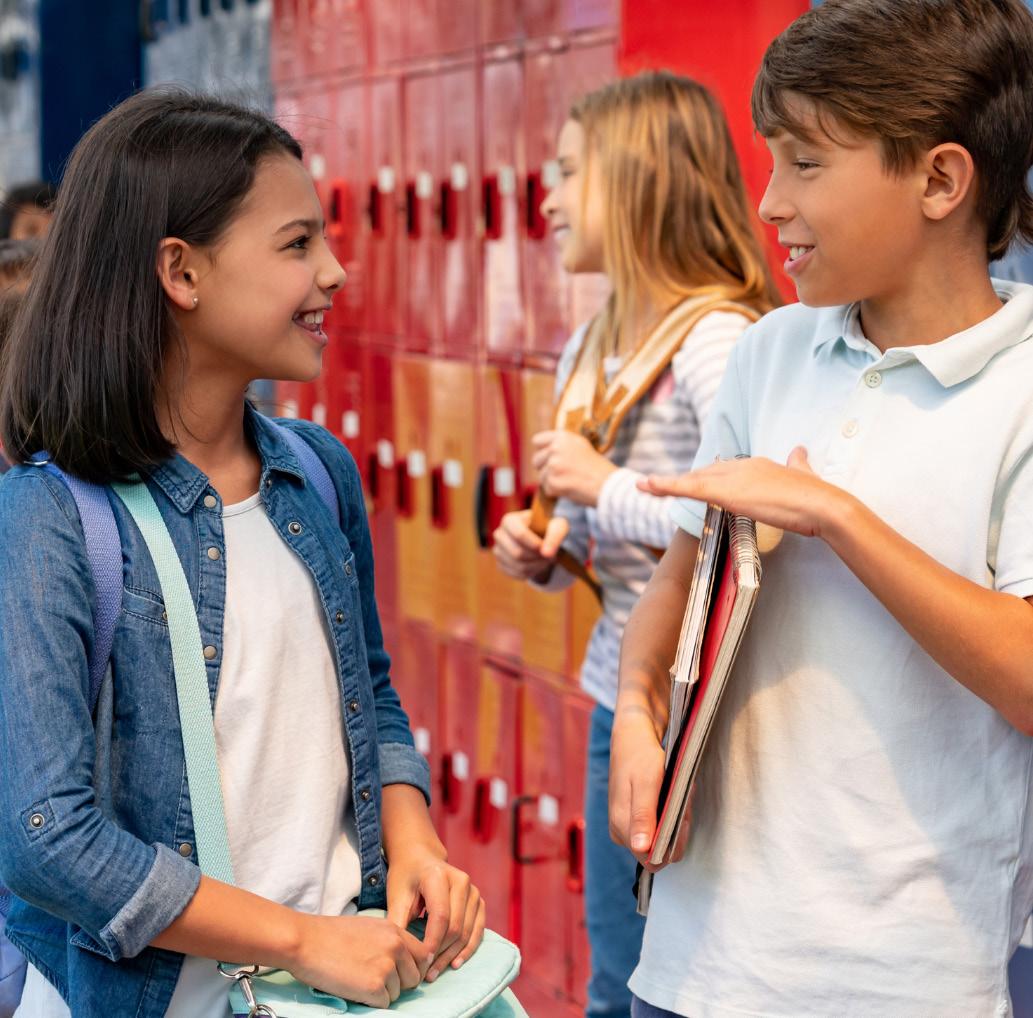
responsibilities, kids and parents can feel stretched too thin. Be intentional about leaving some afternoons or evenings completely free for family time, rest, or low-key fun at home. Not every moment needs to be scheduled for kids to learn and thrive. In fact, downtime often gives kids the mental and physical space they need to recharge and show up fully for the activities they love.

By taking a thoughtful and supportive approach, you can help your child engage in activities that promote their development, happiness, and overall well-being.








Dear Parents,
These words don’t come easily. I find myself in a position where I am left with no choice but to bear my heart on my sleeve and ask a favor.
Could you please give your child time to play?
I want to provide this for them in school. I miss the days of a dress-up trunk and play kitchen. I miss the block corner and a craft table. Your children need these things, and I can no longer provide them.
See, the day is busy, as you know. We are in a new era of education. Opinions on that aside, I want you to know I recognize the change. The academic rigor is good but also pushes other things out of the picture.
Your child is learning higher-level mathematical
concepts at a much earlier age. Algebra is introduced in first grade now. But there is a cost, and exploring geometry through Legos and wooden blocks just doesn’t fit in.
The writing your child is doing is amazing. There are insights and opinions and text-based evidence, but I had to let something go to make room for this. Unfortunately, we don’t really have time for the creative writing we used to see so much of. It’s not gone, but it feels that way sometimes.

Complex texts and more non-fiction are filling our day. This provides amazing connections with social concepts. But the loss is things you may remember about grade school. We don’t learn about the 50 states and capitals anymore, and the solar system study is no longer about making a model of
The technology we have is amazing. Computers are putting more information at their fingertips than we could have found in any encyclopedia. But it does mean more time in front of screens and that typing trumps cursive. I know that’s hard to swallow, but it’s just the best use of our time.
Art, music, and physical education are still there for most of us, but not in the classroom. It’s one session a week as a ‘special’, but I just don’t have the time or resources to pull the paints out in the classroom anymore. I’m unsure how to justify it with everything else that must be taught.
Thankfully, reading is still an essential part of our day. We read books and articles and primary sources. It’s wonderful to open up new worlds of information. But it had to take the place of something and reading for fun seemed to be the thing that fell away. It breaks my heart, but this is why I need you.
I need you to bridge this gap with me. When your children come home please fill these voids in what I am able to do in six hours a day.
Let them be messy with glitter and paint. I know it’s hard, but they need time to be creative.
Let them be loud and run and get dirty outside. I know there is not a
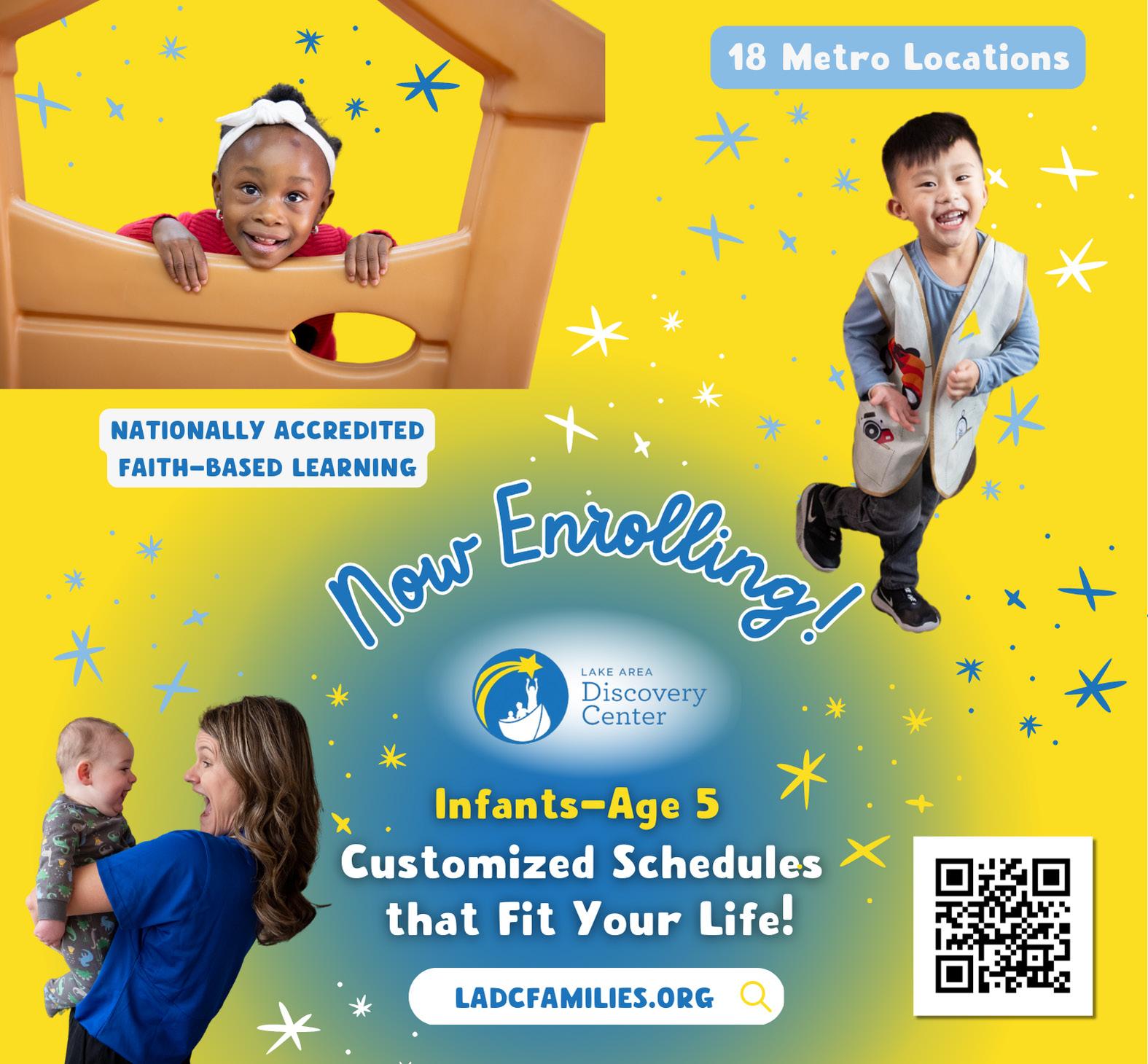
lot of time, but their bodies need freedom to move.
Let them read a book just because it’s beautiful. I know you’re busy with dinner and homework, but the beauty of words can inspire them to dream.
Let them try new things. Go places. Visit the library just because. Play tag. Build a tower. Let their imagination run free.
Kids need this. Play will only help them become better learners, thinkers, and creators. No matter how old or young they may be please make time for them to play.
I will do my best for them in the classroom. I will provide academic rigor and teach all that I’m supposed to. On top of that, I’ll try to squeeze in opportunities for all that’s been pushed aside. I’ll do what I can, but I need your help.
Please, give them time to play.
Sincerly, A Teacher Who Wants the Best
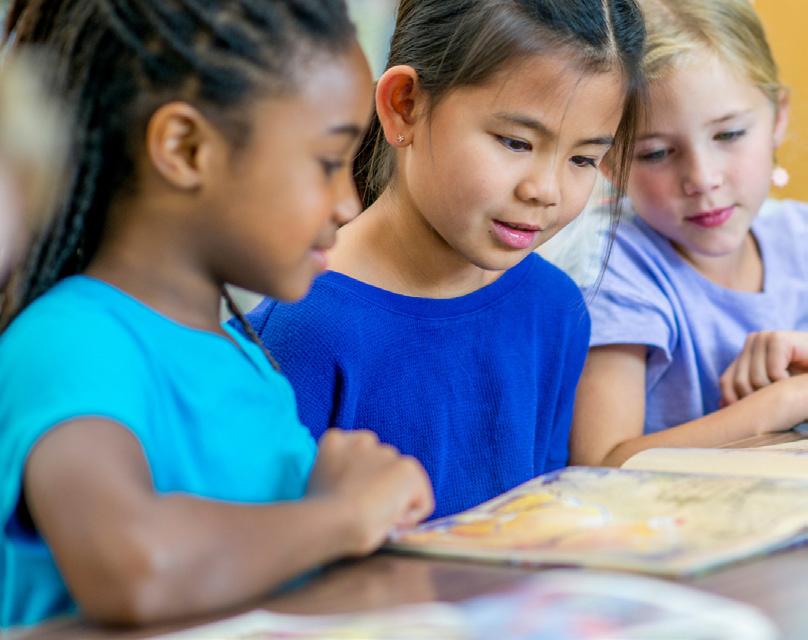
Parenting is hard. Really hard. But when you have a child with a disability or complex health-care needs, your family will face challenges that not everyone can understand.
Thanks to Family Voices of Minnesota, who provides Tools, guidance & community for families raising children with disabilities.
This local nonprofit organization operates parent groups, a free, state-wide parent-to-parent peer-support program in which every staff member has a child with a disability or complex health-care needs.
When a parent calls Family Voices, they will right away speak to a parent who understands their situation.
Not only can those parents provide kindness and understanding, they also can help families navigate complex systems such as available medical care, insurance plans, schools, community services, child-care options, waivers, therapies and more.
Specially trained parent advocates share their own similar experiences and help parents feel less alone — as well as more confident when speaking up for their children, who often need special services.
To support Family Voices of Minnesota, you can attend the organization’s annual benefit — an evening of appetizers, drinks, music and performances.
For help, talk or text to 612-440-1609 (9 a.m.–4 p.m. weekdays) or go to familyvoicesofminnesota.org.

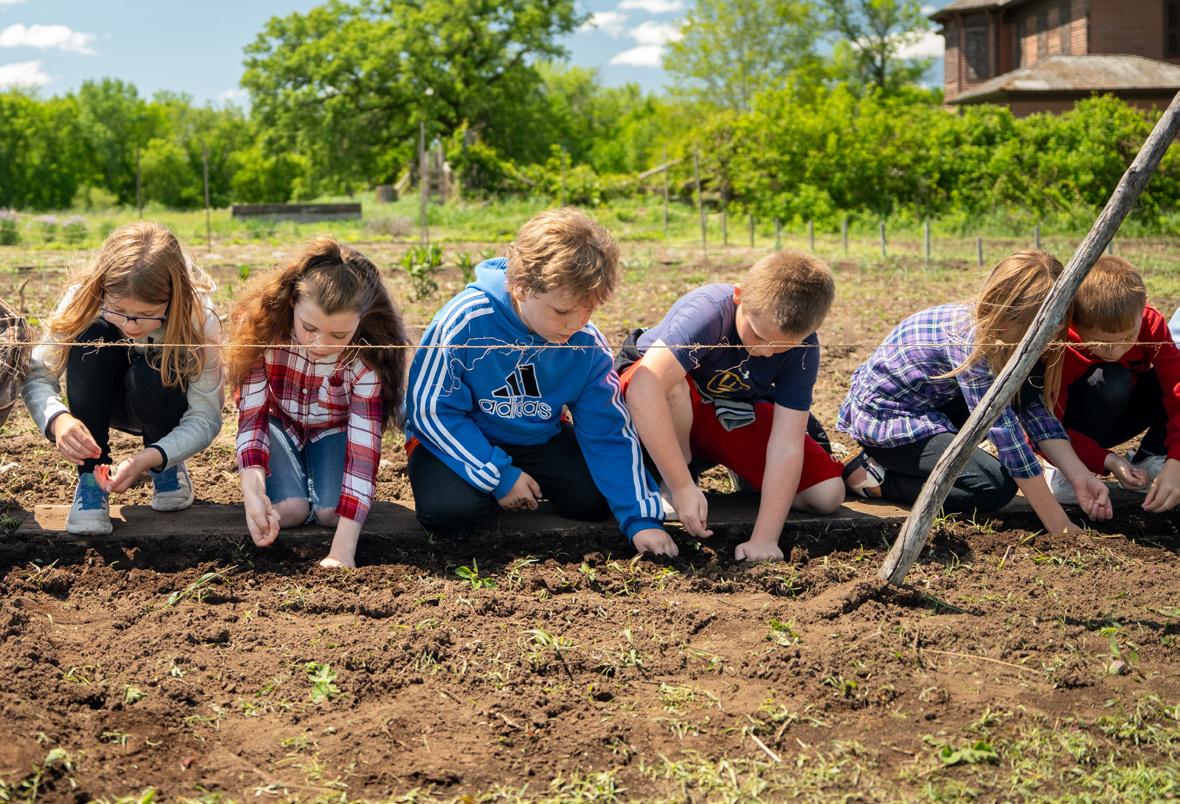





When Emily’s son struggled in a traditional classroom, she knew he needed something different. That’s when she discovered Falcon View Online, a tuition-free K-12 public school available to families across Minnesota.
The flexibility and support have been life changing. My son is confident and loves learning again!
Falcon View Online gives families the best of both worlds: a hyper-flexible online learning environment with the benefits of a public education. Students receive personalized instruction, opportunities for live and self-paced lessons, and access to supportive teachers and counselors who help them succeed both academically and socially.
Customized Learning Plans: Giving every student a pathway designed to meet their goals.
Live & Self-Paced Learning: A balance adapting to a variety of learning styles.
College & Career Readiness: Falcon View offers opportunities for every student from advanced coursework to credit recovery.
Whole-Child Support: Counselors and caring teachers focus on academics and wellbeing.
Community & Connection: Students can enjoy in-person events and activities as well as virtual clubs.
Whether your student needs more flexibility, extra support, or advanced opportunities, Falcon View Online is committed to help students learn, build & soar!
Students have the flexibility to complete their classes at their leisure while spending on average 30-60% less time on schoolwork than students in a traditional classroom setting.

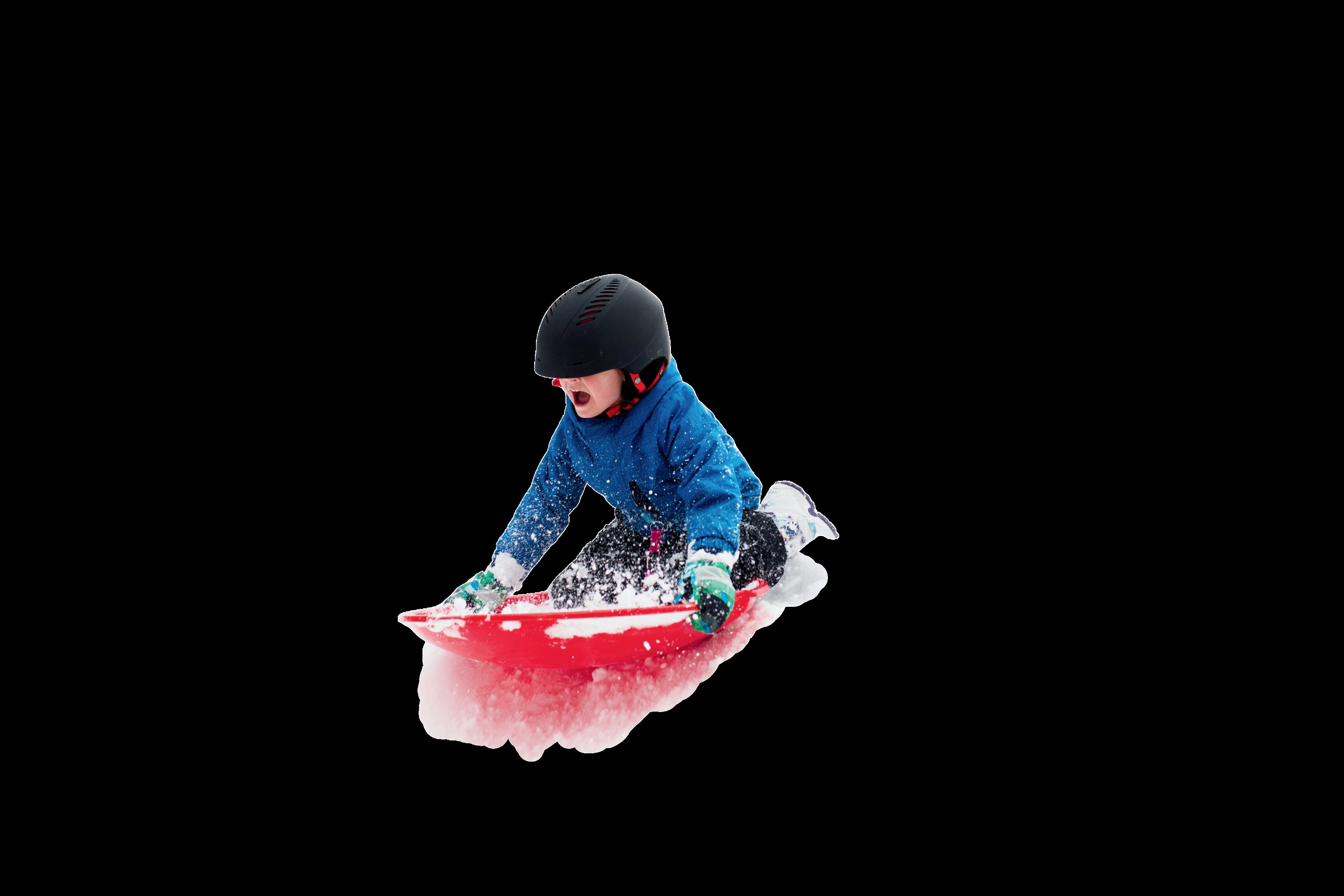
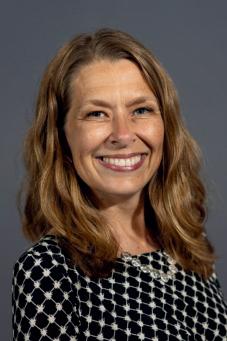
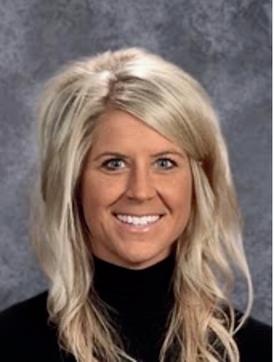
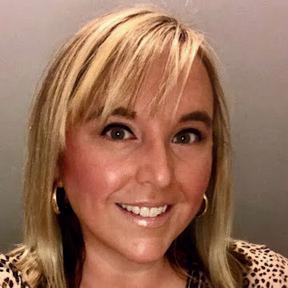


u By: Katie Heruth
How to find the perfect fit for your child’s growth and happiness.
Choosing an early education program is one of the most important decisions you’ll make as a parent. These first school experiences set the foundation for your child’s love of learning, social-emotional growth, and future academic success. With so many options available—preschools, Montessori programs, nature-based schools, and more—it can feel overwhelming to figure out which one is best for your family.

level when interacting with children. These are all signs of a nurturing environment where kids are valued.
The good news? With a little planning and the right questions, you can find a program where your child will thrive. Here’s what to look for as you explore your options.
Children learn best when they feel safe and cared for. When you visit a school, pay attention to the atmosphere. Are teachers greeting children by name with smiles? Does the space feel inviting and child-centered?
Look for evidence of respect and kindness. For example, classrooms should display children’s artwork, books should be easily accessible, and teachers should be down at eye
The heart of any early education program is its teachers. Ask about staff qualifications, including degrees or certifications in early childhood education. More importantly, observe how teachers interact with children.
Are they patient, encouraging, and engaged? Do they ask open-ended questions and support problemsolving? Skilled educators don’t just manage a classroom—they guide and inspire curiosity while fostering independence and confidence.
In early childhood, play is learning. A high-quality program offers a mix of structured activities and open-ended play. Look for a curriculum that supports all areas of development—cognitive, social-emotional, physical, and creative.
Hands-on experiences such as building with blocks, exploring nature, or engaging in dramatic play help children build important life skills. Be cautious of programs that focus too heavily on worksheets or rigid academics at this age.
Every child grows at their own pace. Small class sizes and low teacher-to-child ratios ensure that each child gets the attention they need. This individualized approach allows teachers to support strengths, address challenges, and nurture emerging interests.
Ask about class size and how teachers differentiate learning to meet children’s unique needs.


Before enrolling your child, make sure the program meets state licensing requirements for health, safety, and staff qualifications. Licensed programs must follow strict guidelines related to child safety, teacher training, and facility standards, which helps give families peace of mind.
Beyond licensing, some schools pursue national accreditations that go above and beyond basic requirements. These accreditations are a strong indicator of quality and continuous improvement. Well-known organizations to look for include:
• NAEYC (National Association for the Education of Young Children): Recognized as one of the highest standards in early childhood education.
• NECPA (National Early Childhood Program Accreditation): Focuses on comprehensive program quality and teacher training.
• AMSI (American Montessori Society) or AMI (Association Montessori Internationale): Important for Montessori-based programs.
Also look for recognized quality ratings:
• Minnesota’s Parent Aware rating system: a voluntary quality rating and improvement system that uses a 1- to 4-star scale to show how well programs use best practices (including readiness for kindergarten).
Ask schools if they are accredited and what steps they take to maintain their standards.
These layers of oversight and recognition help ensure a program doesn’t just survive regulation but strives toward excellence.
Early education is a partnership between parents and teachers. Look for a program that values family involvement and keeps you informed about your child’s day and their progress.
Regular updates, parent-teacher conferences, and open-door policies are all signs of strong
communication. A great program will view you as an essential part of your child’s learning journey.
While philosophy and environment are crucial, practical details matter too. Consider location, tuition, hours, and transportation. Does the program align with your family’s schedule and budget? These logistical factors can make a big difference in your day-to-day

Ultimately, the best program for your family will feel like a place where your child is happy, supported, and excited to spend their day. After doing your research and visiting schools, trust your instincts. You know your child better than anyone.
By taking the time to evaluate options, you’re setting the stage for a positive, joyful start to your child’s educational journey.
When visiting childhood programs, bring this list to guide your conversations:
4 What does a typical day look like for the children?
4 What is your approach to play and academics?
4 How do you communicate with families?
4 What is the teacher-to-child ratio?
4 Is the program state licensed and are there recent inspection reports available?
4 Does the school have any national accreditations?
4 How do teachers handle discipline and guide behavior?
4 What safety and health measures are in place?
4 How do you support children with different learning styles or needs?
Tip: Watch how children interact with teachers and one another. Their joy and engagement speak volumes!



CHECK OUT OUR RESOURCES ON SOCIAL MEDIA, TOO!









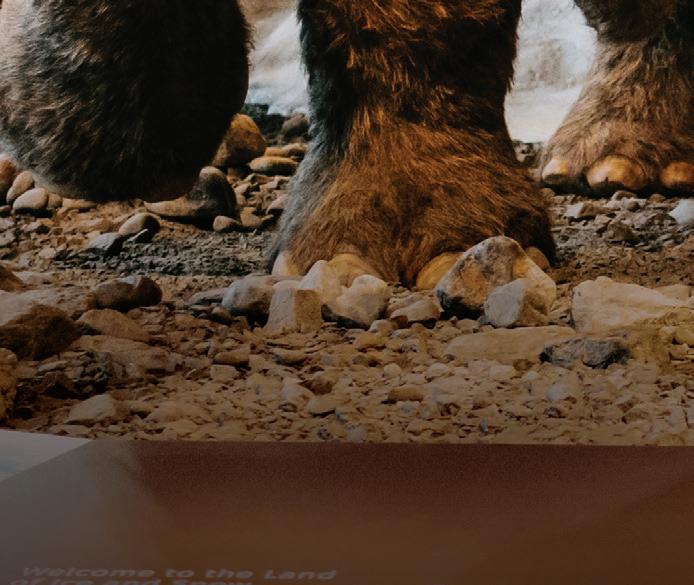
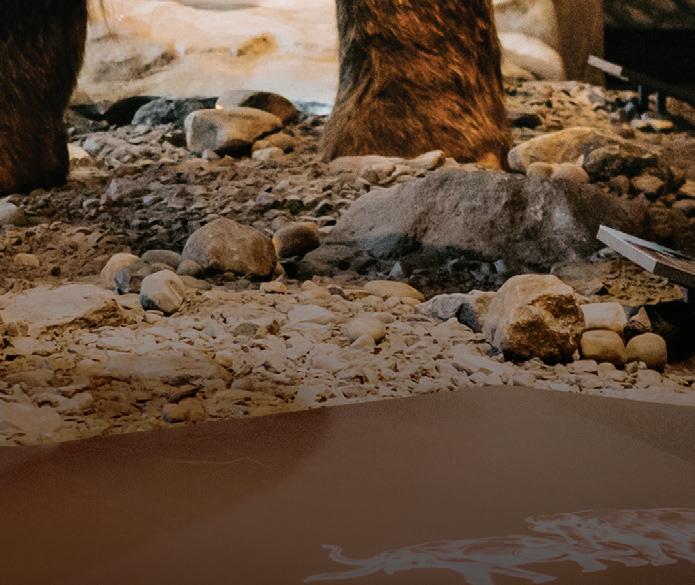
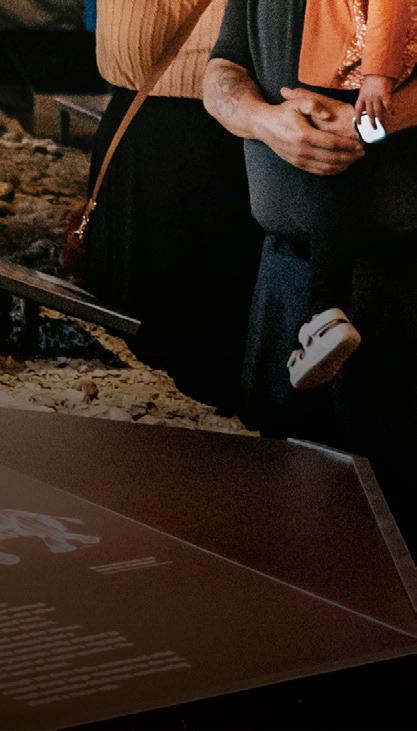

Explore Minnesota’s landscape through world-renowned wildlife dioramas, travel to the edges of the universe in the Whitney and Elizabeth MacMillan Planetarium, get hands-on access to natural history specimens in the Touch & See Lab, and so much more! Plan your visit today at bellmuseum.umn.edu Make mammoth-sized memories at
Woodbury Leadership Academy
Woodbury Leadership Academy is a welcoming, inclusive tuition-free K-12 public charter school focused on academic rigor, community building, and preparing students to be exceptional leaders in their community. We use inquiry based learning by teaching Core Knowledge Curriculum — building strong skills in math, reading, writing, history, science and technology. Woodbury • wlamn.org
Music Together in the Valley
In these award-winning classes, we show parents and caregivers how to help their children become confident, lifelong music makers just by having fun making music themselves. Bond more closely with your child though song. Make new friends for you both. Join us for 45 minutes of PURE FUN each week!
Multiple Twin Cities Locations musictogetherclasses.org
Minnesota Orchestra
Did you know the Minnesota Orchestra offers free tickets for kids through the Hall Pass program? Children under age 6 are welcome to attend Family and SensoryFriendly Concerts with the purchase of an adult ticket. Older kids (6 +) are welcome to attend Family, Sensory-Friendly and Classical concerts for free.
Minneapolis • minnesotaorchestra.org
O’Shea Irish Dance (OID)
Offering world-class Irish dance training, solo and team competition, and professional Irish dance and music shows, O’Shea Irish Dance is led by Cormac O’Sé, T.C.R.G.(original Riverdance cast).
Dancers of all ages train as athletes, artists, and performers in a supportive community, gaining confidence, fitness, and lifelong friendships.
St Paul • osheairishdance.com
Landmark Center
Landmark Center, a vibrant cultural hub in downtown Saint Paul, offers music, dance, theater, exhibitions, and family-friendly events. Enjoy the arts together in this beautiful National Historic Monument!
St Paul • landmarkcenter.org
Minnesota History Center
With inspiring exhibits, thought-provoking events, engaging speakers, and action-packed discovery, the History Center feeds your curiosity about Minnesota’s stories, people, and places.
St Paul • mnhs.org/historycenter
Mill City Museum
Explore where old mingles with new at Mill City Museum, built into the ruins of what was once the world’s largest flour mill.
Minneapolis • mnhs.org/millcity
Historic Fort Snelling
This National Historic Landmark resides on Dakota homeland, known as Bdote, with history spanning 10,000 years. Learn about the military fort and surrounding area, home to history that includes Native peoples, trade, soldiers, veterans, enslaved people, immigrants, and the changing landscape.
St Paul • mnhs.org/fortsnelling
Oliver Kelley Farm
Experience the story of farming, food and agriculture — past and present! Explore the original 1860s working farm, and get an up close view of the animals and gardens.
Elk River • mnhs.org/kelleyfarm
Forest History Center
Experience the stories of the north woods and learn about the lumberjacks who called these forests home. Explore Minnesota’s forests of yesterday and today through exhibits and nature trails.
Grand Rapids • mnhs.org/foresthistory
Split Rock Lighthouse
Behold 1000 watts of ship-stopping power! Experience the sights, the history, and the technology behind this signature Minnesota landmark anchored on the rocky coast of Lake Superior.
Two Harbors • mnhs.org/splitrock
MELSA is the Twin Cities Metro regional library system, including more than 100 public library branches across the 7-county metro.
St Paul • melsa.org
Falcon View Online
Inspiring purposeful lives, grounded in community, built on respect, committed to excellence, and strengthened through engagement.
Stillwater • falconviewonline.org
One91 Virtual Academy
Give your child a flexible, engaging education with One91 Virtual Academy. Our certified teachers, daily live lessons, and interactive curriculum ensure academic success from kindergarten through high school. Discover personalized learning, supportive community, and pathways to future careers—all from the safety and comfort of your home. Enroll today!
Burnsville • virtualacademy.isd191.org
Lake Area Discovery Center
A leader in Early Childhood Education since 1999, is NOW ENROLLING Infants-Age 5 at their 18+ Metro locations! Highlights include Faith-Based Learning, National Accreditation, a Four-Star Parent Aware Rating, & Flexible Scheduling. Schedule a tour today!
Twin Cities Metro Area LADCFamilies.org
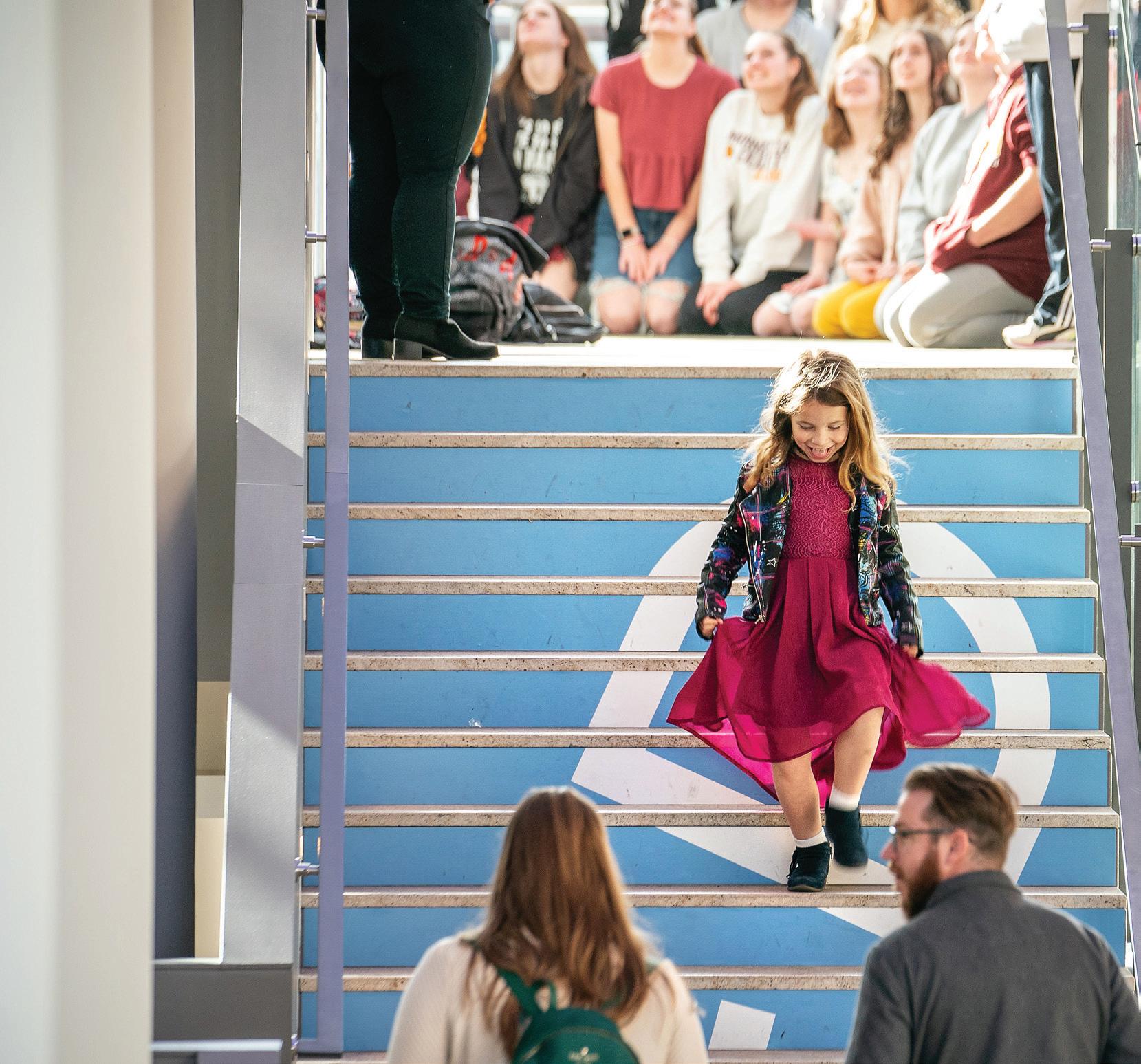
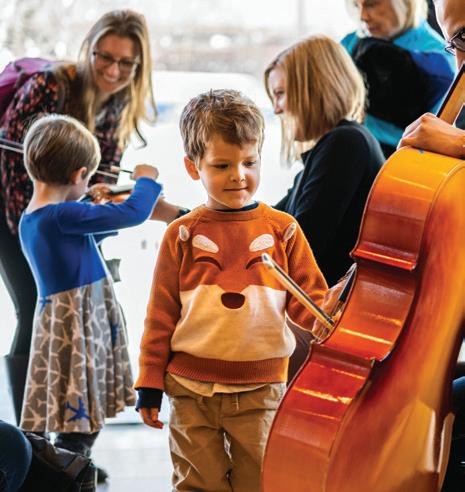

Lightbridge Academy
Lightbridge Academy supports working families with nurturing care and education for infants through Pre-K. Stay connected through ParentView® and our parent app while your child engages in hands-on learning. Now enrolling—our curriculum unlocks each child’s potential, preparing them for school in a safe, enriching, and supportive environment.
Ramsey & Champlin lightbridgeacademy.com
Casa de Corazón
At Casa de Corazón, learning comes alive through Spanish and cultural immersion. Our advanced early education program focuses on the whole child—shaping the mind with discovery, the body with healthy habits, and the heart with empathy. We inspire curiosity, confidence, and compassion.
Multiple Twin Cities Locations casaearlylearning.com
One91 Early Childhood
Grow your child’s future with One91 Early Childhood! From ECFE classes and family events to licensed childcare starting at 6 weeks (Ready to Grow & Ready to Learn) and preschool options for ages 3–5, we support every stage of early learning. Serving Burnsville, Eagan & Savage families at Diamondhead and beyond. Burnsville communityed.isd191.org/early-childhood
The Gardner School
The Gardner School, with 7 Minnesota preschools, offers an academically focused program in a safe, nurturing setting. Our teachers meet each child’s unique needs while encouraging growth, confidence, and curiosity. Families trust us to provide the care and learning foundation their children deserve.
Multiple Twin Cities Locations thegardnerschool.com
Eden Prairie Montessori
Eden Prairie Montessori provides a personalized learning experience tailored to each child’s unique needs and interests. With over 30 years of experience, our dedicated, certified teachers foster independence, confidence, and curiosity through the Montessori method. Children progress at their own pace, building cognitive, social, emotional, and physical skills in a safe, nurturing environment.
Eden Prairie • edenprairiemontessori.com
New Horizon Academy
New Horizon Academy is a nationally recognized childcare, preschool and early learning provider with more than 70 centers in Minnesota. Through research-based curriculum and highquality childcare, New Horizon Academy schools nurture and prepare children to succeed in school and in life.
70+ Minnesota Locations newhorizonacademy.net
Kinderberry Hill Child Development Center
Kinderberry Hill Child Development Center is a Reggio Emilia-inspired early learning program offering care and education for infants, toddlers, preschoolers, and pre-kindergarten children. We offer child-led curriculum, year-round outdoor classrooms, and dedicated STEAM and Spanish language education, ensuring that your child will have the very best start.
7 Twin Cities Locations kinderberryhill.com
YWCA Minneapolis Children’s Centers
YWCA Minneapolis offers high-quality, affordable child care, equipping children with the knowledge and skills to reach their true potential. Our NAEYC-accredited and Four-Star Parent Aware-rated early learning programs offer a whole-child learning approach to build children’s social-emotional, cognitive, physical and cultural development. Minneapolis and St. Paul ywcampls.org

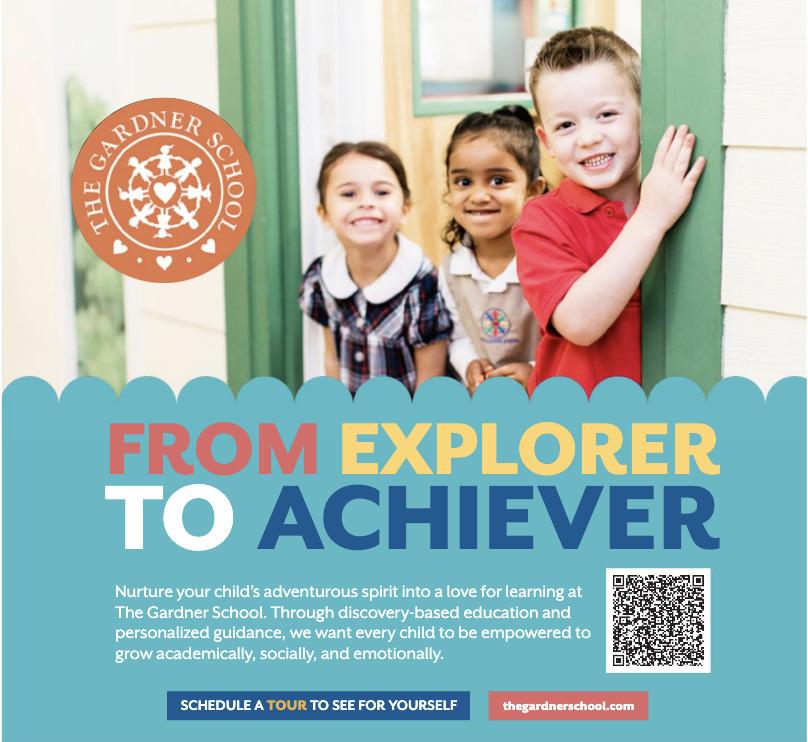
City of Lakes Waldorf School
CLWS offers a dynamic educational experience for students PreK-8. Since 1988, CLWS has been celebrated for its commitment to a true whole child approach, blending art, music, and movement into a rigorous academic curriculum that uniquely prepares students for high school and beyond. Minneapolis • clws.org
The International School of Minnesota
ISM is rated Minnesota’s #1 private Preschool (33 months) - Grade 12 college-preparatory school. We empower students to become confident, compassionate leaders in an everchanging world. As a member of the SABIS® Global Network, we focus on academic excellence, global perspectives, critical thinking, and lifelong learning.
Eden Prairie internationalschoolmn.com
Brightmont Academy
Brightmont is a private school with one-to-one instruction, open enrollment, and flexible scheduling. Nationally accredited, we follow MN state standards, and offer a full-time and part-time elementary, middle school, and high school curriculum, including advanced and accelerated learning, credit recovery, tutoring / skill-building programs for math, writing, reading, and executive function.
Mendota Heights & Plymouth, MN brightmontacademy.com
Mounds Park Academy
Mounds Park Academy is the #2 ranked PreK-12 private college preparatory school in Minnesota, where academic rigor prepares students to stir the human spirit, stand for justice, and shake the world.
Saint Paul • moundsparkacademy.org
Dodge Nature Center and Preschool
Dodge Nature Center and Preschool is a nonprofit providing exceptional experiences in nature through environmental education. The nature center spans 460+ acres across four properties in West St. Paul, Mendota Heights, and Cottage Grove. Dodge provides field trips, camps, public programs, community events, and 8+ miles of free hiking trails.
West St. Paul dodgenaturecenter.org
District 191
Burnsville-Eagan-Savage School District 191 is a future-forward school district creating barrier-free pathways for learning for everyone in our community. We believe learning is a lifelong pursuit, and create programs, services and opportunities that inspire this belief.
Burnsville • isd191.org
Bell Museum
The Bell Museum is Minnesota’s state natural history museum, founded in 1872 and serving learners of all ages for over 150 years. Visit our world-renowned wildlife dioramas, experience the hands-on Touch and See Lab, and tour the cosmos in the Whitney and Elizabeth MacMillan Planetarium.
St Paul • bellmuseum.umn.edu
Navigating MSP Airport
Ease your anxiety about traveling with children with specials needs, try a practice run through MSP Airport. Minneapolis-St Paul International Airport mspairport.com/navigating
